Ninja vs Nutribullet: which blender brand is right for you?
Should you choose Ninja or Nutribullet for your blending needs
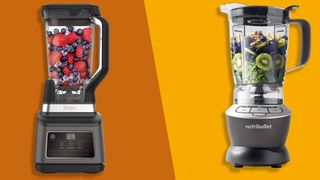
When it comes to getting more fruit and vegetables in our diet, smoothies are taking over. More than half of us enjoyed a refreshing and nutritious treat last year (and that number is set to increase in the near future). One of the best blenders is a must, not just for smoothies but for a range of other culinary prep such as sauces, soup and even crushing ice and milling nuts.
They're two of the biggest names in the blending market right now but how do you decide between Ninja vs Nutribullet? Both offer an array of full-size jug blenders and personal cup style blenders, also known as smoothie makers and if you’re thinking of buying a blender, it makes sense to consider these brands.
However, it can be hard to decide which is best suited to you, so we’ve tested a range of devices from both brands to give you the low-down.
Ninja vs Nutribullet: Best deals
Read on to find out just how these blending brand compare – or, if you know which model you want, check out the best prices right now for both products below:
Ninja vs Nutribullet: Range
Both Ninja and Nutribullet are known for making some of the best personal cup blenders. Ninja offers three personal blenders in the US and Australia, in the UK there are four models to choose from.
The specific models vary by country but the top-of-the-range Ninja Foodi Smoothie Bowl Maker and Nutrient Extractor (known as the Ninja Foodi Power Nutri Blender 2-in-1 with Smart Torque & Auto-iQ in the UK and the Ninja Foodi Power Nutri Duo in Australia) is the one of the designs available in all three countries. In addition to standard smoothies it’s designed with the power to pulverize nuts and seeds into smooth nut butters and create thick, spoonable smoothie bowls that don’t require extra liquid to blend thoroughly.
In addition to the personal cup blenders Ninja has seven full size blenders (although only five of these are available in Australia and just four in the UK). They range from simple jug blenders to multi-purpose kitchen systems that incorporate food processors, soup makers, personal blending cups and smoothie bowl accessories. With various combinations of accessories, Ninja blenders allow you to combine two or three appliances in one, saving space and money and the variety offered means there’s something for everyone in this range.
Get daily insight, inspiration and deals in your inbox
Get the hottest deals available in your inbox plus news, reviews, opinion, analysis and more from the TechRadar team.
Nutribullet has a larger selection of personal blenders than what’s on offer from Ninja, with six models available in the US, while UK customers can choose between seven and if you’re in Australia there are a whopping ten different versions.
On the face of it most Nutribullets look very similar, with the range consisting of different wattage levels at different prices and of course different combinations of cups included. However, some models require you to push down on the cup to activate the blender while others automatically start once the cup is attached, or you can opt for one with a control panel that allows you to choose a blend speed.
The Nutribullet RX available in the UK and the US can heat as well as blend, so you can create tasty hot soups. Or there’s the innovative Nutribullet Balance available in the UK that has built in scales and can connect to an app to give you nutrition information for your smoothie. And for smoothies anywhere, there's the cordless Nutribullet Go.
The Nutribullet range of full-size blenders isn’t quite so extensive, US customers can choose between four models, in the UK there are just two, or if you’re in Australia there are three. The differences between each of the models include differences in the wattage, control interface and whether or not personal blending cups are included in the bundle. Read our review of the Nutribullet Blender Combo here.
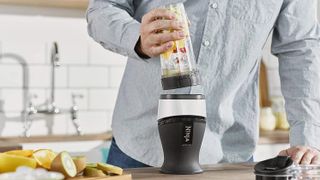
Ninja vs Nutribullet: Price
If you’re after a full-size jug blender, a Nutribullet blender with no accessories will set you back $109.99/ £99.99 (not available in Australia) and for that, you’ll get an easy-to-use no-fuss blender with a large 64oz/ 1.6-liter pitcher.
For a similar model that includes personal blending cups, you can expect to pay $149.99/ £149.99/ AU$229.99 for the Nutribullet Blender Combo. Or for the top-of-the-range blender (which isn’t available in the UK) you’re looking at $189.99/ AU$299.95 and this buys you the powerful 1500W Nutribullet Smart Touch Blender Combo with a touchscreen display, intelligent programs, and two personal cups for easy on-the-go drinks.
The most basic Ninja full-size jug blender in the UK and Australia is the BN750 which is called the Ninja Professional Plus Blender Duo in Australia and the Ninja 2-in-1 Blender with Auto IQ in the UK.
It’s equipped with a large 74 oz / 2.1 liter jug as well as a 25 oz / 700ml personal cup, one-touch controls, and 1200W of blending power, it’ll set you back £129.99/ AU$249.99. In the US the cheapest Ninja blender is the $99.99 Ninja Professional Plus Blender with Auto-IQ, it’s got a sizable 72 oz / 2.1 liter pitcher and 1400W of blending power.
Other Ninja blenders include the Ninja Foodi Blender and Soup Maker which is called the Ninja Foodi Cold and Hot Blender in the US and costs $159.99/ £149.99 (not available in Australia). This versatile blender can also make smooth and chunky soups. Or for $199.99/ £199.99 you can combine a full-size blender with a personal blender and food processor with the Ninja 3-in-1 Food Processor with Auto-IQ which is called in the Ninja Professional Plus Kitchen System with Auto-IQ in the US (again this model isn’t available in Australia).
For personal blenders the Nutribullet 600 Series (known as the Nutribullet 600W Personal Blender in the US) is the most basic and lowest power Nutribullet model that’s available worldwide, it costs just $79.99/ £69.99/ AU$89.95. The most powerful Nutribullet available is the Nutribullet 1200 Series (known as the Nutribullet Pro 1200 in Australia but not available in the US) which comes in at £119.99/ AU$149. The most powerful of the standard range in the US is the Nutribullet Pro 1000 and it’s $99.99. As mentioned above, innovative models include the Nutribullet Rx which can make hot soup as well as smoothies for $179.99/ £139.99 or the UK only Nutribullet Balance for £149.99.
Ninja personal blenders start at $69.99 in the US for the Ninja Nutri-Blender Plus or £49.99/ AU$159.99 for the UK Nutri Ninja Blender & Smoothie Maker (known as the Ninja Pro Blender in Australia). Both models are 900W and come with two cups.
At the other end of the scale is the aforementioned top-of-the-range Ninja Foodi Smoothie Bowl Maker and Nutrient Extractor (known as the Ninja Foodi Power Nutri Blender 2-in-1 with Smart Torque & Auto-iQ in the UK and the Ninja Foodi Power Nutri Duo in Australia) which will set you back $119.99/ £99.99/ AU$249.99 but has the power to make nut butter and thicker smoothie bowls.
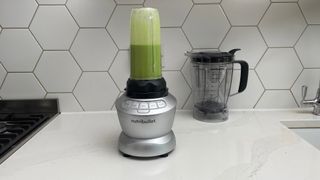
Ninja vs Nutribullet: Features
When it comes to power, both brands offer full size blenders at a range of power levels to suit all needs. Nutribullet offers models with up to 1500W power in Australia and the US or 1200W in the UK. Ninjas' highest power full size blenders are different in every country, you can get a 1200W model in the UK, but in the US they go up to 1400W and 1500W in Australia.
On the whole, Ninja offers a more varied and versatile range of full-size blenders incorporating other appliances like soup makers and food processors to make them multi-purpose. Whereas the Nutribullet models are more of your regular style of blender. Additionally the Ninja blenders typically come with larger 72oz/ 2.1 liter pitchers, Nutribullet pitchers tend to be around 64 oz/ 1.8 liter. And based on the models we’ve reviewed, the Ninja full size blenders feel more robust than the Nutribullet models.
In terms of personal blenders, both brands offer a range of power levels and there’s not a huge difference between them. They both offer a range of different size cups available to purchase separately.
In terms of innovation, each brand is pushing the boundaries in a different way. As mentioned above, Ninja has developed a personal blender that’s designed specifically to cope well with thick mixtures. It can make smoothie bowls, paté and even nut butters which are recipes most other personal blenders wouldn’t cope well with.
Whereas Nutribullet has developed a personal blender that can heat up ingredients to produce soup. And although it’s only available in the UK the Nutribullet Balance takes away the need for weighing scales when measuring out your smoothie ingredients, plus if you’re counting calories or macros, it’ll make life easier when you connect to the app for nutrition information.
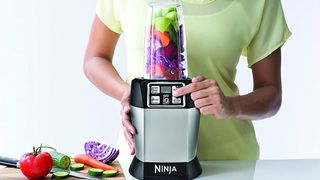
Ninja vs Nutribullet: Verdict
Both brands offer a great range of blending appliances that are well-equipped to pulverize soups and smoothies into lump-free liquids. Ninja full-size blenders are packed with features and accessories that make them the best option for multi-purpose models and Nutribullet has a good selection of simple easy-to-use blenders.
Price-wise there’s not much in it, both brands offer affordable options of full-size as well as personal blenders. Nutribullet has the largest range of personal blenders to choose from, making it easier to find the perfect model to suit your requirements.
- Prefer coffee to smoothies? Check out the best coffee makers you can buy right now
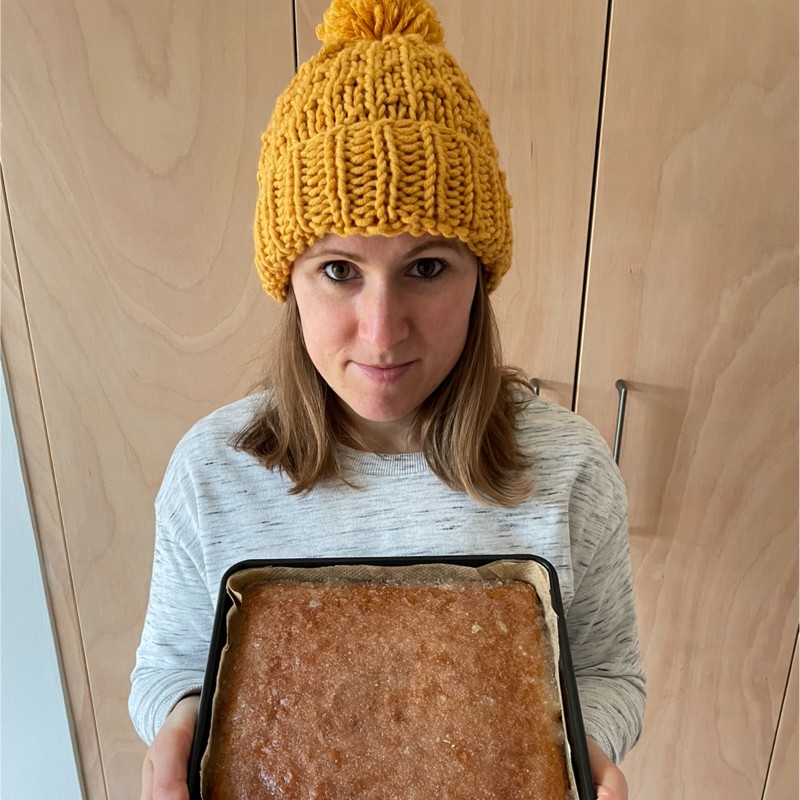
Helen is a freelance writer who specializes in kitchen appliances and has written for some of the biggest home-related titles around. She has been reviewing small appliances, including blenders, juicers, and multi-cookers, for more than 8 years, and also upholsters furniture when she's not testing the latest food tech gadgets.
Most Popular


